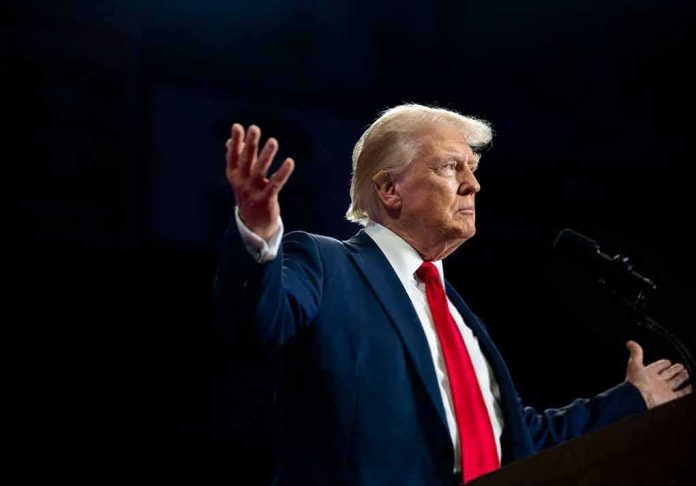
A leaked dossier alleges that the BBC manipulated Trump’s January 6 speech, raising concerns over media bias.
Story Highlights
- A BBC documentary is accused of editing Trump’s speech to misrepresent his words.
- The whistleblower claims internal complaints were ignored by BBC executives.
- The allegations suggest a broader pattern of bias in BBC’s editorial practices.
- The dossier adds to the scrutiny of media accountability and impartiality.
Allegations of Manipulated Editing
A leaked dossier from a former BBC standards committee member accuses the BBC of editing Donald Trump’s January 6, 2021 speech in a Panorama documentary. The whistleblower claims that segments of Trump’s speech were spliced together to suggest he incited violence, omitting his call for peaceful protest. This alleged manipulation is part of a pattern of editorial malpractice aimed at misrepresenting conservative figures, raising significant questions about media ethics and bias.
The documentary, “Trump: A Second Chance,” aired in October 2024, has become the centerpiece of these accusations. It is alleged that senior BBC executives ignored internal complaints about the editing decisions, despite the potential to mislead viewers. This highlights ongoing concerns about the integrity of media institutions that are expected to uphold impartiality and factual reporting, especially in politically sensitive contexts.
Whistleblower’s Claims and BBC’s Response
The dossier, which is detailed in a 19-page document, has been reported by The Telegraph. It suggests that the whistleblower’s concerns about journalistic practices went unaddressed by the BBC’s leadership. This raises questions about the role of internal oversight within media organizations, especially one as influential as the BBC. As the UK’s public broadcaster, the BBC is held to high standards, and such allegations could have far-reaching implications for its reputation and trustworthiness.
The BBC has yet to release an official statement addressing the specific claims in the dossier. The delay in response has fueled speculation and increased scrutiny from both the public and political entities. The potential impact on the BBC’s funding and governance could be significant if the allegations are substantiated, prompting calls for reforms and stricter oversight of editorial practices.
Implications for Media Accountability
This controversy is part of a larger debate about media accountability and the ethical responsibilities of public broadcasters. Allegations of bias are not new to the BBC, which has faced similar critiques in its coverage of other sensitive issues like Brexit and the Israel-Palestine conflict. The current situation underscores the need for transparency and accountability in journalistic practices to maintain public trust.
The implications of these revelations could be profound, not only for the BBC but for the broader media landscape. As media consumers demand more transparency, organizations must balance editorial judgment with the ethical imperative to provide accurate and fair reporting. This case emphasizes the importance of rigorous standards and the role of whistleblowers in holding institutions accountable.
Sources:
BBC Accused Of Doctoring Donald Trump Speech
Exclusive: BBC ‘doctored’ Trump speech, internal report
BBC ‘doctored’ Trump January 6 footage which ‘completely misled viewers’
BBC ‘materially misled viewers’ by deceptively editing Trump Jan. 6 speech







